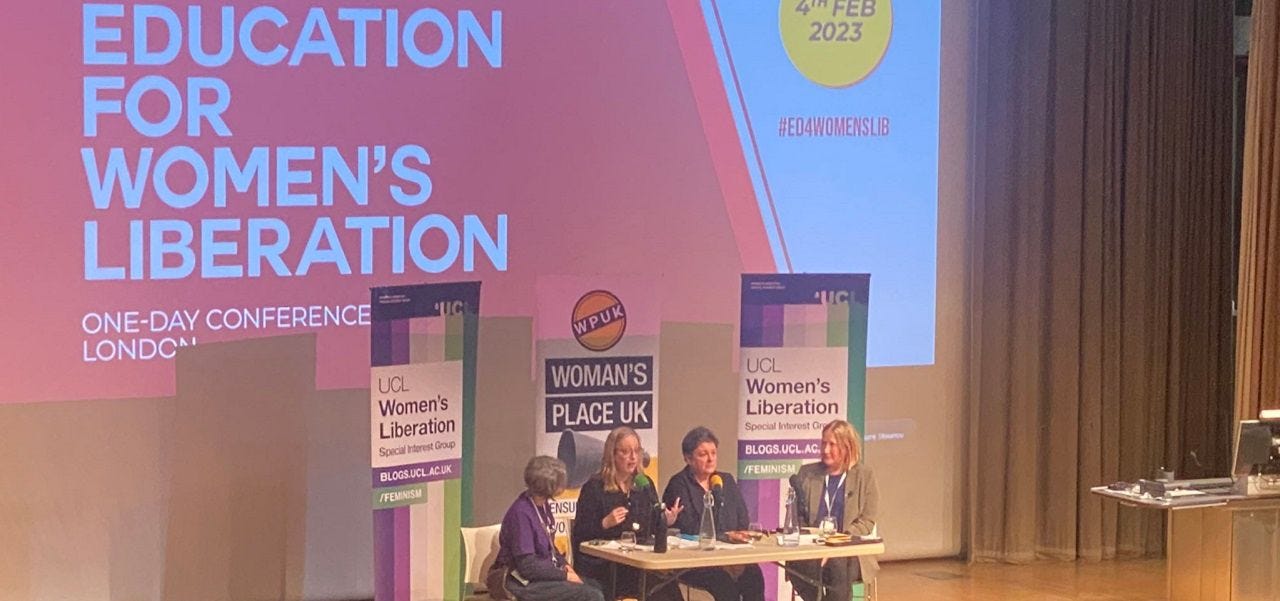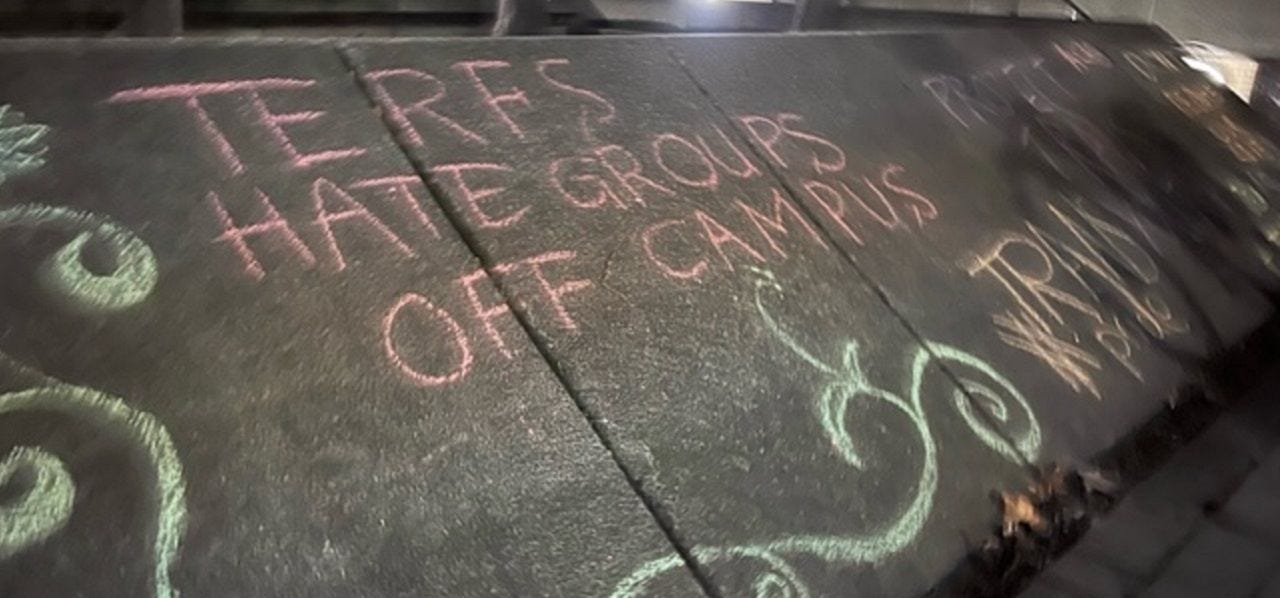Time to talk
A report from two excellent conferences, one organised by the London Society of the New Lacanian School and the other by left-wing feminists Woman’s Place UK
I attended two excellent conferences in London last Saturday: one organised by the London Society of the New Lacanian School (a style of psychoanalysis) and the other organised by left-wing feminist campaign group Woman’s Place UK. It was bad luck that both were on the same day—but striking that they were about ten minutes’ walk apart, meaning that I was able to spend the morning with the New Lacanians and the afternoon with WPUK.
If you are not a subscriber to my weekly newsletter, you might like to sign up for free updates. I hope that in the future you might consider subscribing.
Striking, but not chance. Both were held under the auspices of University College London, of which I’m proud to be an alumna (I did my PhD in mathematics there, graduating in 1995). UCL has a distinguished record of opening up education beyond the privileged male elite and standing up for free speech against entrenched orthodoxies. It has an active and brave special-interest research group into women’s liberation, which co-hosted the event with WPUK. And it played host three years ago to the inaugural WPUK Women’s Liberation Conference—almost the last public event I attended before covid lockdowns hit. In other words, in a university sector marred by groupthink and cowardice, UCL stands out for all the right reasons.
Both events made me more optimistic that we can find a way through the gender mess. The New Lacanian event was the first I know of that sought to platform gender-critical voices at an event for professionals, of any sort, who work with gender-dysphoric or trans-identified people. It wasn’t just me, either. Marcus and Sue Evans, Michael Biggs and David Bell, all of whom have made significant contributions to uncovering the medical scandal unfolding at the Tavistock Clinic, also spoke. It felt like a crack in the ice of “no debate”.
The afternoon with WPUK was joyous, too. It was such a pleasure to be back with so many of the same women who had been at the event three years ago, plus some new ones, and to celebrate the progress made since then as well as discuss the work that still remains.
I had hoped to tidy up my speaking notes for both events in time to share at least one this week, but sheer busy-ness means I haven’t yet. But as always, preparing to speak to an audience stimulated new thoughts, as did the many conversations on the sidelines. I’ll share both, hopefully next week.
In the meantime, here’s a piece that the Daily Mail published about my experience complaining to my son’s sixth-form college about its absurd and dangerous “trans inclusion policy”. I think there was a lot of point in making this complaint, even though I didn’t get anywhere with it—at least now the college will have to stop saying that “nobody has complained”. And when something bad happens, as I’m horribly afraid it will, they won’t be able to say they weren’t warned.
It drove home to me how incredibly hard it is to get professionals working with children to listen to parents’ concerns. Most parents are busy, and will probably not have any idea that a school has been captured by trans ideology unless and until their own child falls victim. But then they won’t want to enter into conflict with the school about policy, because they rightly prioritise trying to rescue the situation for their child. And anyone who does notice, and doesn’t have child on the frontlines, is likely to fear kicking up a fuss, when the result is being called a bigot. Hardly anyone is in my situation: my children are fine, my job isn’t at risk and I’m already comprehensively pre-cancelled.
I have some more thoughts about what people can do to push back in schools and other institutions, nonetheless. I shared some of these at the WPUK event, but I’m still refining them, and will have more to say about this.
And finally—a couple of podcasts I appear in that came out recently: Story Box and Inside the War Room. I haven’t had a chance to listen back to either yet, but I enjoyed both conversations, and as always found that something new came out of them. People weren’t made to write; it’s not natural. Speaking, on the other hand, is natural, and your interlocutor is there in front of you. Each interviewer asks me something different, or in a different way. And in the effort to make myself understood as clearly as possible to a real, live human being listening intently to my answers, I always find I understand myself a bit better too.
If you would like to become a paid subscriber and receive full access to my weekly newsletter, you can sign up here.



